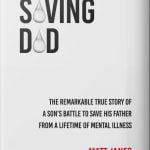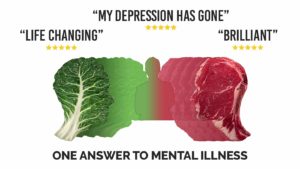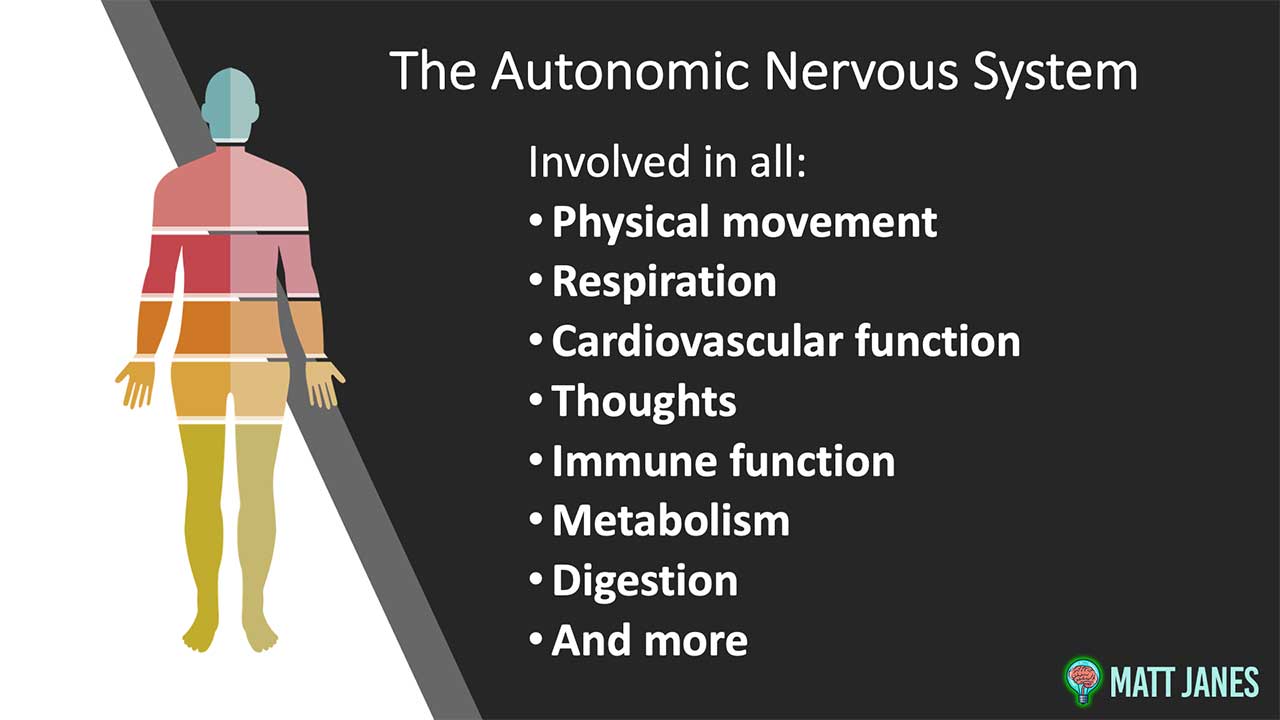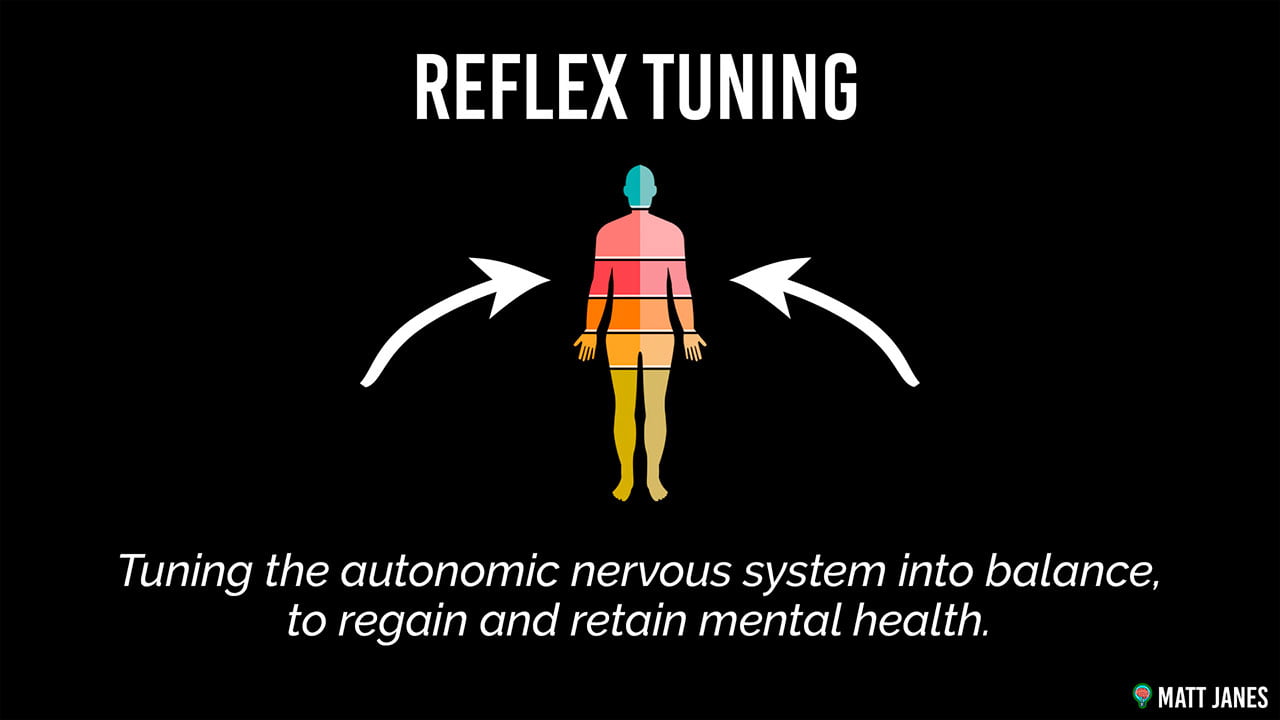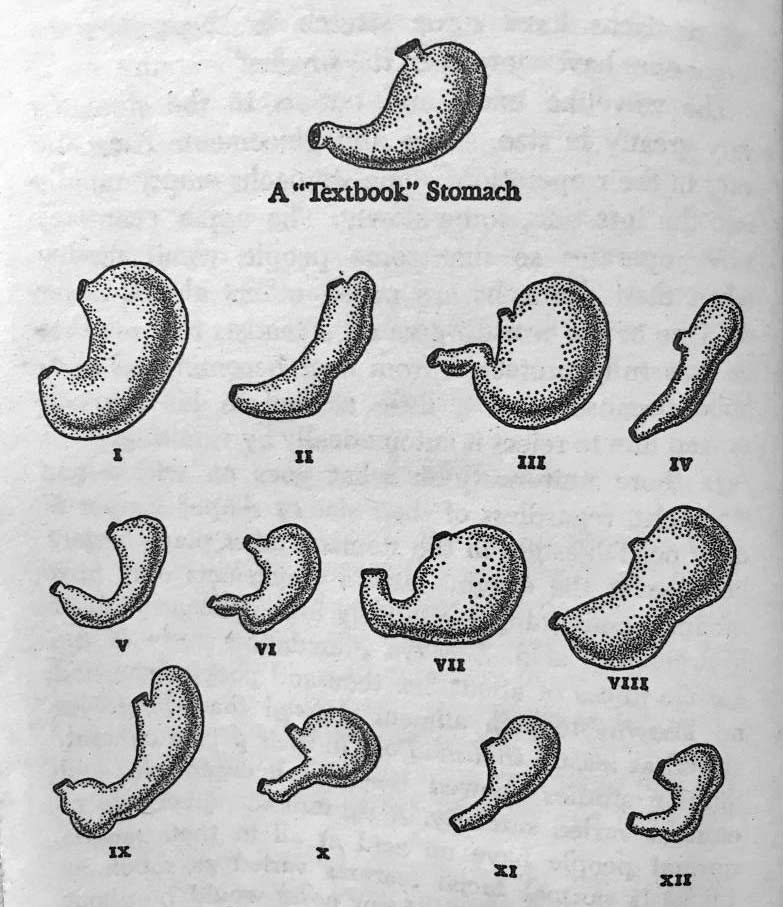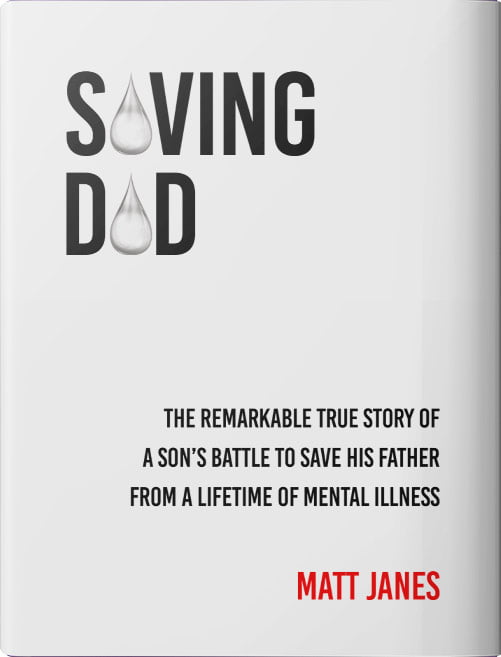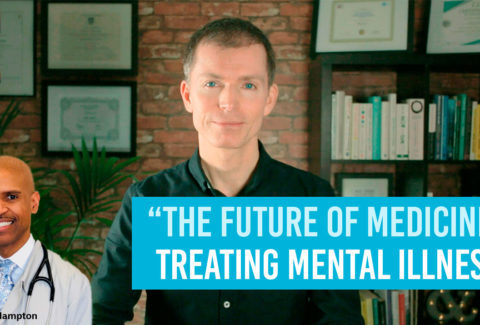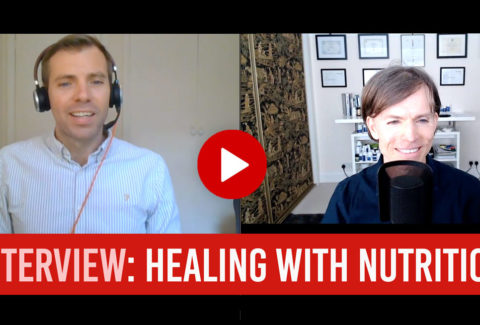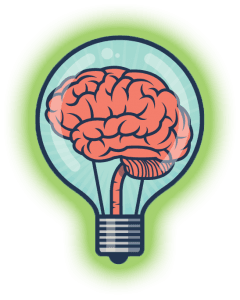Why Nutrition is so Important for your Mental Health
May 27, 2020 2021-07-25 10:42Why Nutrition is so Important for your Mental Health
Why Nutrition is so Important for your Mental Health
Desperation can drive us to extraordinary places. My dad was laying in the foetal position in a psychiatric hospital bed, suffering from suicidal depression for the 7th time in his life. Psychiatry had run out of ideas.
Watching him suffer was too much to bear, so I took it upon myself to find an answer to his distress. After many years of studying the fine intricacies of the brain and nervous system, I discovered how:
Nutrition.
Given that you’re not going to learn this information from your GP, or a psychiatrist, (they don’t teach nutrition in medical school), I’m going to break it down for you here, in this article.
The 2 Key Components of Nutrition
When it comes to nutrition and mental health, there are two vital components you need to know about:
- Energy
- Communication
Let’s begin with energy.
Imagine your brain as a car. Bring an image of this car into your mind. What type of car do you see? Is it a Ford, or is it a Ferrari? I imagine that if it’s a £160,000 Ferrari, you’re going to make sure that you fill it with the best possible fuel. High octane, premium unleaded.
Now, what about your brain and body? How are you fuelling those? Nutrient-dense, or nutrient-starved food? In the western world, we often treat our cars better than our bodies.
To achieve good mental health, you need to power your brain and nervous system with the correct, and sufficient amounts of, nutrients. Some of these can only be provided through diet, because the body can’t produce them itself. These are known as essential nutrients. One of the main reasons why we have a mental health crisis is down to insufficient amounts of the following nutrients in our diet:
- Healthy fats
- Vitamins
- Minerals
- Trace elements
This is due to the fact that the typical western diet, or SAD (Standard American Diet), includes a high percentage of carbohydrates, sugars and nutrient-starved food. This isn’t your fault. You’ve been told to eat this way.
Ever since Ancel Keys fabricated a story about fats causing cardiovascular disease, greatly influencing government nutritional guidelines, the western diet has been high in carbohydrates and sugars. During this time, mental illness has become an epidemic:
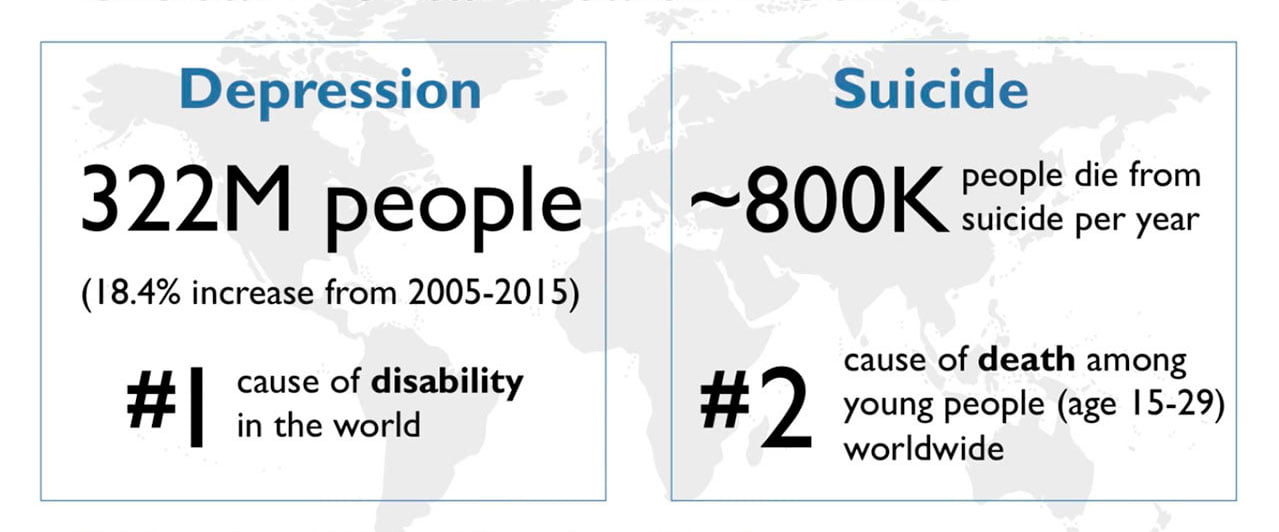 Source: World Health Organisation, 2017 figures. Global population = 7.6 billion (slide courtesy of Georgia Ede)
Source: World Health Organisation, 2017 figures. Global population = 7.6 billion (slide courtesy of Georgia Ede)
The Big Fat Lie
Your brain needs fat. It is made up of 60% fat. And whilst it represents only 2% of the body’s mass, it uses 25% of the body’s cholesterol. So it needs to be fed with fat.
But not any old fat. Feed it with the type of fats that you’ve been wrongly told are healthy, like omega-6 ‘vegetable’ oils (which aren’t even made from vegetables!), and you’ll inflame your gut, then your brain, increasing the risk of inflammatory depression.
Instead, your brain is hungry for two different kinds of fats;
- Omega-3 fats
- Saturated fats
Yes, saturated fats, those which you’ve been told will make your fat and give you a heart attack are some of the best fats for you. If you’re skeptical, here’s some hard data for you. Tests on 75,655 men and women, mostly in-patients (therefore highly controlled), in experiments lasting 1 to 12 years, showed that saturated fats had NO EFFECT on cardiovascular mortality or total mortality.
 Photo credit: Homemade ghee, courtesy of Megumi Nachev
Photo credit: Homemade ghee, courtesy of Megumi Nachev
The quickest way to get essential fats from food is from animal products. Sorry to upset any vegetarians or vegans, which I undoubtedly just have, but animals are far more abundant in omega 3 and saturated fats. Yes, you can get ALA fats from vegetable sources, but only up to 9% of these fatty acids convert into the omega-3 fats you need to sustainably fuel your mitochondria, the power generators of your body’s cells.
Clearly, everybody has the right to choose whatever they want to eat, or not eat, and there most definitely is not one diet to suit everyone, the work of Dr. Weston Price proved that beyond doubt. However, the levels of Omega-3s found in the blood plasma of vegetarians and vegans compared to meat eaters were as follows:
- Anti-inflammatory EPA omega-3 levels were 53% lower in vegans
- Anti-inflammatory EPA omega-3 levels were 28% lower in vegetarians
- Levels of DHA omega-3, which fuels neuron function (including mitochondria fuelling, plus myelin and synapse formation) were 59% lower in vegans
- Levels of DHA omega-3, which fuels neuron function (including mitochondria fuelling, plus myelin and synapse formation) were 31% lower in vegans
Source: Rosell MS et al. Long-chain n-3 polyunsaturated fatty acids in British meat-eating, vegetarian and vegan men.
So what should vegans and vegetarians do?
Seaweed is one of the few plants that contain EPA and DHA (it’s also a great detoxifier), and whilst they don’t provide as much EPA and DHA as animal products, non-meat and fish eaters can load up on flaxseed, either grounded or better still in oil form, plus chia seeds, hemp and walnuts. These ALA fatty acid laden foods will at least provide a proportion of the fuelling your brain and nervous system demands.
Which fats should you use for cooking?
When it comes to choosing what to cook your food in, choose saturated fats over polyunsaturated fats. Saturated fats, which are solid at room temperature due to their single carbon bond and being saturated with hydrogen molecules, are much more stable.
Unlike unsaturated fats, they haven’t been hydrogenated, a process which involves being heated, pressured, having a solvent added, as well as a metal catalyst, then steamed to remove the bad odour, bleached to remove the grey colour, and ‘winterised’ for stability, then enhanced with artificial colours and synthetic vitamins.

Photo credit: Fresh coconut, courtesy of Diana Kulenyuk
When it comes to choosing a saturated fat for cooking, both meat eaters and vegetarians can’t go wrong with coconut oil. It’s healthy and gives food a lovely taste. If your kids won’t eat their veg, try cooking them in coconut oil.
People who eat animal products have more choice, extending to ghee (clarified butter) which also has the added benefit of not containing any of the inflammatory casein found in regular butter, tallow (beef) or lard (pig).
Critical role of fats
The final characteristic of fats is perhaps the most important. Fatty acids activate the sympathetic nerves, the ‘get up and go’ branch of your autonomic nervous system, providing you with energy and alertness. This brings us neatly on to nutrition and the autonomic nervous system.
Nutrition and the Autonomic Nervous System
I studied autonomic neuroscience for many years and have come to understand that, not only does it get insufficient attention in medical school, but this series of nerves is the key to achieving good mental health.
I’ll write more about the intricacies of this system in future articles, but for now, you need to know that keeping the autonomic nervous system in balance, or homeostasis, is critical to staying healthy, both physically and mentally.
The great news is that, whilst this system needs no conscious input from you to function, you do have influence over it, and therefore can help to bring it into balance. Dr. Ernst Gellhorn coined this as ‘reflex tuning’.
Reflex Tuning
There are a few things you can do to perform reflex tuning, including manipulating your breath, thoughts and beliefs. If you want to learn exactly how to do this, take my online course, Thrive.
The other significant means of tuning your autonomic nervous system is through diet.
The critical role of vitamins, minerals and trace elements
Over and above the nutritional value of every vitamin, mineral and trace element you derive from food, the most important role of nutrients is their effect upon the autonomic nervous system.
Different nutrients either activate or suppress the two branches of this system, which are the;
- Sympathetic nervous system, and
- Parasympathetic nervous system
Dr. Francis Pottenger Sr. was the first person to discover the critical influence of nutrients upon the autonomic nervous system. In 1936, he discovered that potassium stimulated the parasympathetic nerves. His work, and position as a pioneer in understanding the autonomic nervous system, was confirmed by scientists 70 years later.
Not only did they demonstrate that potassium does indeed activate the parasympathetic nerves, but also that magnesium blocks, and calcium activates, the sympathetic nerves.
Bringing about balance through diet first requires you to know the genetically pre-determined balance in your autonomic nervous system. The early work of Dr. Pottenger was later confirmed by Drs. Funkenstein, Gellhorn, Kelley and Gonzalez, who all demonstrated that people naturally fall into one of three autonomic groups;
- Sympathetic dominant (Group 1)
- Balanced metaboliser (Group 2)
- Parasympathetic dominant (Group 3)
Which group you belong to determines which foods you should eat, and nutrients your body needs, to achieve optimum health, both physically and mentally.
Not only does your autonomic grouping influence your psychological and physiological profile, but also your health profile. The relative strength and weakness of the different organs and biological systems of Group 1s means that they rarely get some illnesses, but frequently get others.
The same goes for Group 3s. They have strong digestive systems, which means that they rarely suffer from illnesses such as IBS and constipation, but their relatively weak respiratory system and leaky cell membranes means that they are much more susceptible to asthma, bronchitis and pneumonia.
Individual Biochemistry
Everybody has a unique biochemical profile, which demands varying amounts of nutrients to achieve autonomic balance.
One of the most dramatic ways to demonstrate this need is through examining the physical variation between different people’s organs. Dr. Barry Anson, author of An Atlas of Human Anatomy, states that “the so called normal features of the human anatomy do not apply to more than 15% of the population.”
Look at the dramatic variation in shape and size of twelve real stomachs, compared to a ‘textbook’ stomach, in the picture below:
Source: You Are Extraordinary, Roger J. Williams
Imagine the difference in enzyme and acid production in these differently shaped and sized organs, and their subsequent efficiency in digesting food.
Typically, people don’t have any insight into their autonomic balance, individual biochemistry and nutritional needs, so using my years of expert knowledge and experience in autonomic neuroscience, I’ve created an online program, One Answer to Mental Illness
Many people have already resolved their mental illness using my nutritional approach, including Scott, who said, “I took Matt’s program, then 5 days after changing my diet, my depression began to lift. After 10 days, I felt like a different person, full of energy and hope. I’m in no doubt that A New Model for Mental Health represents a genuine alternative to psychiatric medication.”
Here’s what Don Ste Marie says about my program, “Brilliant, A Game Changer. I am confident that this course will help thousands that may be struggling with their mental health. It will also help countless others optimize their general health. This course is a tour de force with respect to understanding the relationship between what we ingest and how we feel and behave. Matt does a tremendous job in providing the history and science on a subject that most of us know little about. I don’t think I have learned so much on a topic in 4 hours in my life. I highly recommend this course. Thank you Matt, for your research, energy, and passion.”
Then, Annic Scholer Musfeld says, “A Milestone in the History of Mental Health. ‘A New Model for Mental Health’ is simply incredible. I am impressed how clearly Matt leads you through a highly complex topic like the nervous system, how he explains what happens with you when the sympathetic or parasympathetic strand dominates, and how you can get back into balance using the right diet and supplements. If you are struggling with mental health problems and looking for a solution away from classical medicine, then try this program, I highly recommend it. Thanks Matt.”
Enrol here – One Answer to Mental Illness
Why much of your food is starved of nutrients
During the 1930s, when Dr. Weston Price travelled the world, to live with 14 different tribes from 14 different countries, over a period of 8 years he observed that people who followed their traditional diet were absent of chronic disease, including mental illness.
This compares with the landscape today, where an estimated 81% of the western population suffer from chronic disease. The reason? The western diet.
As well as creating health problems through its inflammatory effect on the gut, modern food contains a fraction of the nutrients of traditional diets. Why is this?
Soil quality
To eliminate pests and to promote rapidly growing and plentiful crops, non-organic farmers spray herbicides and pesticides over their crops and soil. This strips soil of its nutrients, which in turn strips your food of vitamins and minerals.
These products contain chemicals which interfere with the brain’s neuronal signalling, and which has been shown to cause autism, ADHD and other mental illnesses.
For a fascinating insight into the health problems which these chemicals cause, and how they can be resolved (quick tip – eat organic), I highly recommend that you watch the documentary, Secret Ingredients.
Animal feed
Just like lions have evolved to eat meat, cows thrive on grass.
Much of the beef you find in supermarkets comes from grain-fed, not grass-fed cows. The saturated fat and omega-3 content of grass-fed beef is double that of grain-fed beef1.
Grass-fed beef also contains more protein, so by sourcing it from your butcher, you’ll enjoy not only better tasting beef, but meat that is better for your mental health.
Finally, grain affects the PH value of a cow’s stomach, which promotes bacterial growth and can cause E. coli. Best avoided.
Wheat
All wheat is the same, right? Wrong. As you can see from the photo below, the wheat of days gone by stood tall, sometimes to over four feet. Modern wheat however, sometimes referred to as ‘dwarf wheat’, grows to only half that height.
Why? Firstly, to prevent it from being blown over so easily in the wind, which would make it unharvestable, and secondly, to yield a greater crop. Modern wheat has a larger seed head sitting upon its broader stem.
This transformation is the result of intense cross-breeding programs, which have turned the crop into something neither physically, nor genetically, like its old self. How? The result of germinating wheat with non-wheat grasses, and inducing genetic mutations through irradiation and exposure to toxins.
As a result of these genetic changes, the proteins of modern wheat can cause receptors in the intestine to ignite the immune system, creating inflammation both locally and systemically.
Not only does this lead to celiac disease, but can also lead to a host of other inflammatory diseases, such as depression, arthritis, MS, Parkinson’s and Alzheimer’s.
Communication let you down?
As well as performing a critical role in the supply of energy, the foods you choose to eat greatly affect the ability of your brain’s neurons to communicate with each other. Given that literally everything you do, from thinking and speaking, to moving and breathing requires this neuronal signalling, it’s a good idea to get it right.
When neurons are insulated with something called myelin, they can communicate with each other both faster and more readily. Guess what myelin is made from? Fat! (and water). It’s this fat which give parts of the brain its white colour. Unmyelinated areas of the brain give rise to the term ‘grey matter’, due to their grey appearance.
It’s a particular type of omega-3 fatty acid, the DHA that I mentioned earlier, which provides the insulation for your brain’s neurons. Another reason to stock up on fatty fish and meat.
Another fat which comes in for plenty of criticism is cholesterol. You might like to know that cholesterol is essential to the synthesis of myelin.
If you want a deeper dive into the true role of cholesterol and its relationship with fat consumption, check out this brilliant video by Dave Feldman. It will change everything you thought you knew about fat.
After reading this article, do you wonder whether everything you’ve been told about fat is wrong? Since it is now coming to a close, I hope that you’ve learned something new about the critical role which nutrition plays in your mental health.
If you’d like to learn more, watch the video of my keynote speech at the 2020 Mental Health Summit; Nutrition & Mental Health – Insights You Won’t Hear Anywhere Else.
If you think that any of your friends or connections would benefit from reading this article, please share it using the ‘Share this post’ button below.
Finally, if you’d like to read the story of how I resolved my father’s chronic depression by using nutrition in the manner I’ve described here, buy my book, Saving Dad.
Saving Dad charts the true story of his 40 year battle with depression, during which time traditional psychiatry repeatedly failed to resolve his illness, despite prescribing dozens of different psychiatric medications and administering hundreds of courses of electroconvulsive therapy (ECT).
My book proves that there is alternative way to resolve mental illness, even in extremely severe cases.
All the best,
Matt
Reference
- Van Elswyk ME, McNeill SH. Impact of grass/forage feeding versus grain finishing on beef nutrients and sensory quality: the U.S. experience. Meat Sci. 2014 Jan;96(1):535-40.7


